IOCCG news bulletins include items of interest from the IOCCG, its sponsoring agencies, and the broader ocean colour community. Please let us know if there are any other items of interest you would like to see included in the next IOCCG news bulletin by contacting Raisha Lovindeer (raisha@ioccg.org).
News from IOCCG
2025 IOCCG Platt Scholarship Applications open 12 August 2024
Applications for the 2025 IOCCG Platt Scholarship will open from 12 August 2024. The scholarship provides one national of a developing country or economy in transition with the opportunity to conduct valuable research or training in the field of ocean and in-land water remote sensing and applications in an institution outside of their home country.
Applicants must be residing in an eligible country at the time of their application, and are responsible for choosing and making their own connections with host institutions prior to their application. Applications close on 12 November 2024 and the award will be announced in early 2025. See the scholarship webpage for details.
60-Day Community Review of IOCCG Report: Evaluation of Atmospheric Correction Algorithms over Turbid Waters
The draft report: Evaluation of Atmospheric Correction Algorithms over Turbid Waters is now available for community feedback. This report is the latest in the IOCCG Report Series, and is a technical document from the working group on Intercomparison of Atmospheric Correction Algorithms Over Optically-Complex Waters. The report aims to complement and update IOCCG Report #10: Atmospheric Correction for Remotely-Sensed Ocean-Colour Products (2010), which primarily focused on open ocean waters and standard atmospheric correction algorithms. The report is open for community review and comment until 15 September 2024. Please email review comments to raisha@ioccg.org.
Addendum to IOCCG Protocols for Satellite Ocean Color Data Validation: In situ Optical Radiometry
The quality of the satellite ocean colour data products and user services relies on the quality of in situ radiometric measurements used in algorithm development and product validation, and therefore on the instruments that manufacturers provide to the community to perform these measurements. An addendum to IOCCG Protocols Volume 3: Satellite Ocean Color Data Validation: In situ Optical Radiometry was recently added that requests important data, namely absolute calibration coefficients with associated uncertainties, be provided by manufacturers pertaining to their field radiometers to help users to achieve fiducial reference measurement standards in the resulting measurements and data products.
Recommendation for Open-Access Databases for POC and DOC Data for Inland and Coastal Waters
At IOCS-2023, there was a recommendation for the community to develop an open-access database of POC and DOC for inland and coastal waters (2023.04.1) that emerged from the Breakout Workshop on the Global carbon budget for the land to ocean aquatic continuum (LOAC) from remote sensing. Rather than create a separate database for this purpose, the IOCCG Committee suggests collating and adding POC and DOC data for inland and coastal waters to existing open-access community databases, such as SeaBASS.
If you perceive, or have encountered, challenges with the feasibility of this suggestion, feel free to communicate with the IOCCG via ioccg@ioccg.org.
New IOCCG Task Force Deliverable: Ocean Colour System Vicarious Calibration (OC-SVC) White Paper
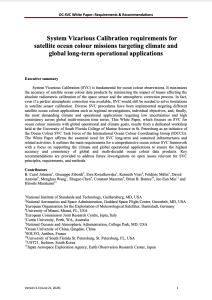 The IOCCG Task Force on Ocean Colour System Vicarious Calibration had as one of their main activities to draft a white paper describing strategy planning for global OC-SVC infrastructure. The white paper, System Vicarious Calibration (SVC) requirements for satellite ocean colour missions targeting climate and global long-term operational applications, is now complete and available on the IOCCG website. It affirms the essential need for long-term and sustained SVC infrastructure and related activities, and outlines the main requirements for a comprehensive SVC framework to ensure high accuracy and consistency of global and multi-decadal ocean colour data products.
The IOCCG Task Force on Ocean Colour System Vicarious Calibration had as one of their main activities to draft a white paper describing strategy planning for global OC-SVC infrastructure. The white paper, System Vicarious Calibration (SVC) requirements for satellite ocean colour missions targeting climate and global long-term operational applications, is now complete and available on the IOCCG website. It affirms the essential need for long-term and sustained SVC infrastructure and related activities, and outlines the main requirements for a comprehensive SVC framework to ensure high accuracy and consistency of global and multi-decadal ocean colour data products.
Updates from the IOCCG Task Force on Remote Sensing of Marine Litter & Debris
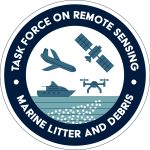 The IOCCG Task Force on Remote Sensing of Marine Litter & Debris has the goal to coordinate advancements of current and future remote sensing technologies and techniques that can potentially observe plastic litter across all aquatic environments. The task force advances this goal through four core topics, and recently published a paper that delivers on their goal of identifying technology to detect floating plastic debris. Emerging technologies for remote sensing of floating and submerged plastic litter concludes that synergy between different remote sensing technologies (passive and active) are recommended to detect marine plastic litter, and proposes the use of proxies to estimate the presence of plastic. In line with this, a relevant manuscript in collaboration with task force members in Nature Communications titled Proof of concept for a new sensor to monitor marine litter from space has been recently published, leveraging the use of proxies and demonstrating their viability for marine litter monitoring in the Mediterranean Sea. Finally, and per its terms of reference, the taskforce has rotated scientific leadership, passing from Shungu Garaba (University of Oldenburg, Germany) to Manuel Arias (ICM-CSIC, Spain).
The IOCCG Task Force on Remote Sensing of Marine Litter & Debris has the goal to coordinate advancements of current and future remote sensing technologies and techniques that can potentially observe plastic litter across all aquatic environments. The task force advances this goal through four core topics, and recently published a paper that delivers on their goal of identifying technology to detect floating plastic debris. Emerging technologies for remote sensing of floating and submerged plastic litter concludes that synergy between different remote sensing technologies (passive and active) are recommended to detect marine plastic litter, and proposes the use of proxies to estimate the presence of plastic. In line with this, a relevant manuscript in collaboration with task force members in Nature Communications titled Proof of concept for a new sensor to monitor marine litter from space has been recently published, leveraging the use of proxies and demonstrating their viability for marine litter monitoring in the Mediterranean Sea. Finally, and per its terms of reference, the taskforce has rotated scientific leadership, passing from Shungu Garaba (University of Oldenburg, Germany) to Manuel Arias (ICM-CSIC, Spain).
Reminder of Open Call for IOCCG Working Group & Task Force Proposals
A reminder that IOCCG welcomes submissions of proposals for working groups and task forces that aim to address OPEN community recommendations from the IOCS meetings. Proposals for working groups should outline a plan for an IOCCG Scientific Report as the output, to be completed within 2-3 years (see example), whereas proposals for task forces should outline on-goping actions for implementation across 3 or more years or until the need for the task force no longer exists. Proposals are accepted on a rolling basis, however those wishing to be reviewed and considered before the next IOCCG Committee meeting should be submitted no later than 31 December 2024.
OPEN Call for Expressions of Interest for White Papers (linked to the US Decadal Survey 2027/28)
Through the IOCCG reports and the breakout sessions at the IOCS meetings, the ocean colour community has made many recommendations over the years about what is needed from future ocean colour satellite missions. This has been a key component of planning future missions for many of the space agencies. For the USA, these recommendations feed into the US Decadal Survey, conducted by the National Academies (for context, see recently published mid-term review of the last (2017) US Decadal Survey).
In an effort to maintain ocean colour science and missions in future planning and funding from satellite agencies, including in the next US Decadal Survey, we wish to have a clearinghouse for ocean colour white papers from the community.
IOCCG currently requests expressions of interest under topics of relevance for future satellite ocean colour missions from individuals or small teams wishing to lead the drafting of a white paper. Drafting of a white paper will include synthesizing the existing recommendations and gaps under your particular topic, and adding in relevant supporting material. Those interested in leading or contributing to drafting a white paper should register interest by emailing the IOCCG Project Coordinator (raisha@ioccg.org) at any time, preferably before the end of 2024.
News from NASA
PACE first full-mission reprocessing now underway!
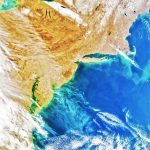 The PACE team is pleased to announce that PACE’s first full-mission reprocessing is now underway. Reprocessing Version 2 primarily serves to incorporate improved calibration knowledge from on-orbit measurements collected by the three PACE instruments. It will also include all standard mode data collected during the PACE commissioning period, starting from instrument engineering first light in February 2024. Reprocessed files/collections will include “V2” in their filenames and metadata.
The PACE team is pleased to announce that PACE’s first full-mission reprocessing is now underway. Reprocessing Version 2 primarily serves to incorporate improved calibration knowledge from on-orbit measurements collected by the three PACE instruments. It will also include all standard mode data collected during the PACE commissioning period, starting from instrument engineering first light in February 2024. Reprocessed files/collections will include “V2” in their filenames and metadata.
The full release notes for Version 2 are available online, as are instructions for accessing PACE data. Please read the release notes carefully, as they highlight known issues. General aspects of Version 2 include:
- Improvements to instruments’ calibration
- Improvements to geolocation accuracies
- Release of additional OCI TEST data products, including cloud optical properties and altitude, a cloud mask, spectral surface reflectances, and land surface indices.
Since PACE is new, TEST results have not yet been reviewed by algorithm developers and/or may be known to have substantial errors in implementation that are under investigation. TEST products are available through the OB.DAAC.
As all data are preliminary, with known issues, please plan their use accordingly and conscientiously. While Version 2 reprocessing includes significant updates, there are many features in the data that are under investigation and several calibrations remain to be applied (e.g., system vicarious calibration). This is all part of the process of a newly launched satellite and there are milestones that can only be achieved after a certain time in orbit. The team welcomes your input and discoveries, but also requests your continued patience while they continue to improve the data and implement advanced algorithms.
There is not yet a defined date for Version 3 reprocessing, which will include the first system vicarious calibration. However, this is expected within the next several months. No dates or deadlines for additional data product releases or advanced algorithm implementation have been assigned, but the team is working hard to streamline and accelerate these processes.
Updated PACE mailing list & event monitoring website
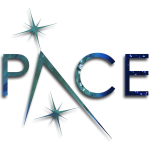 The PACE team is establishing a new, consolidated mailing list to facilitate communication with the community. To join, send a message to pace-community-join@lists.nasa.gov. This will be the only list going forward as the @oceancolor.gsfc.nasa.gov listservs have not been reaching all community members. Please also check the PACE website frequently, as updates are routinely posted. There is also a new event monitoring website to log and describe anomalies (e.g., safeholds and interruptions in data collection), science operations (e.g., lunar calibration maneuvers), and general operations. This event log is updated routinely, and is the best source of information related to routine PACE operations.
The PACE team is establishing a new, consolidated mailing list to facilitate communication with the community. To join, send a message to pace-community-join@lists.nasa.gov. This will be the only list going forward as the @oceancolor.gsfc.nasa.gov listservs have not been reaching all community members. Please also check the PACE website frequently, as updates are routinely posted. There is also a new event monitoring website to log and describe anomalies (e.g., safeholds and interruptions in data collection), science operations (e.g., lunar calibration maneuvers), and general operations. This event log is updated routinely, and is the best source of information related to routine PACE operations.
News from ESA
ESA Living Planet Symposium – External call for Peer Reviewed Session is now OPEN
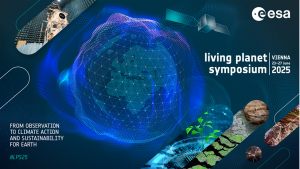 The next ESA Living Planet Symposium (LPS25) will take place in Vienna, Austria from 23-27 June 2025. The LPS25 website is now live at https://lps25.esa.int/ and, with it, an external call for Peer Reviewed Session is now open until 23 August 2024.
The next ESA Living Planet Symposium (LPS25) will take place in Vienna, Austria from 23-27 June 2025. The LPS25 website is now live at https://lps25.esa.int/ and, with it, an external call for Peer Reviewed Session is now open until 23 August 2024.
You are invited to submit ideas for peer-reviewed sessions that align with the symposium’s themes and sub-themes. They seek sessions that will stimulate competitive abstract submissions and attract a large number of attendees, while avoiding redundancy with sessions already proposed. All proposals will be reviewed by the LPS25 Programme Committee, with final decisions made by the LPS25 Programme Board.
Ocean Training Course 2025 (OTC25)
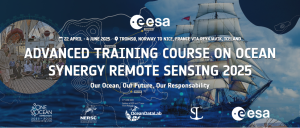 ESA is organizing its 8th Training Course on Ocean Synergy Remote Sensing. The course is open to Masters and PhD students, and Post Docs. The objective is to help trainees to understand and exploit data from ESA and operational EO satellite missions for science and application development and prepare them as future ambassadors of Ocean Science. The course is composed of two mandatory parts: a shore-based online component that consists of 14 modules that are run once per week, for a duration of 2 hours each, starting in January 2025; and a ship-based component aboard the tall ship Statsraad Lehmkuhl during the One Ocean Expedition from Tromø, Norway, to Nice, France, via Reykjavik, Iceland.
ESA is organizing its 8th Training Course on Ocean Synergy Remote Sensing. The course is open to Masters and PhD students, and Post Docs. The objective is to help trainees to understand and exploit data from ESA and operational EO satellite missions for science and application development and prepare them as future ambassadors of Ocean Science. The course is composed of two mandatory parts: a shore-based online component that consists of 14 modules that are run once per week, for a duration of 2 hours each, starting in January 2025; and a ship-based component aboard the tall ship Statsraad Lehmkuhl during the One Ocean Expedition from Tromø, Norway, to Nice, France, via Reykjavik, Iceland.
There are over 40 fully-funded spots available, including spots reserved for developing country nationals. See more information at https://oceantrainingcourse2025.esa.int. Applications close on 8 September 2024 23:59 CET/CEST.
Recap of the Coastal Blue Carbon From Space Forum
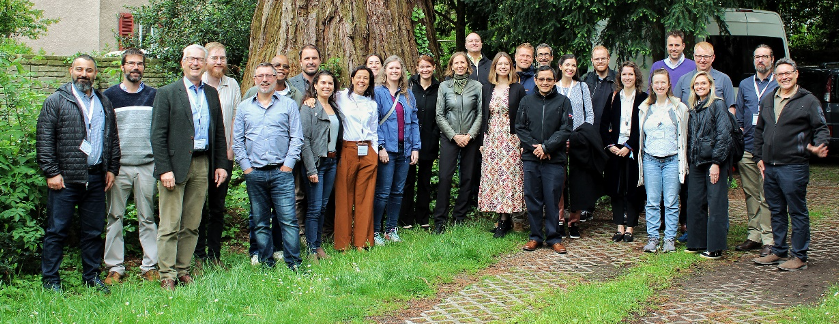 The Coastal Blue Carbon from Space forum successfully took place from 14 – 17 May 2024, at the International Space Science Institute (ISSI) premises in Bern, Switzerland. Organized jointly by ESA and NASA with the support of the ISSI, it gathered 24 participants from 14 different countries across six continents. Participants had diverse and complementary expertise in the realm of blue carbon, and included remote sensing and in-situ observations experts, blue carbon ecosystems and climate change ecologists, marine biologists, and representatives of international organizations and NGOs (IPCC, UNESCO, Wetland Internationals, Conservation International, the Nature Conservancy, GRID-ARENDAL).
The Coastal Blue Carbon from Space forum successfully took place from 14 – 17 May 2024, at the International Space Science Institute (ISSI) premises in Bern, Switzerland. Organized jointly by ESA and NASA with the support of the ISSI, it gathered 24 participants from 14 different countries across six continents. Participants had diverse and complementary expertise in the realm of blue carbon, and included remote sensing and in-situ observations experts, blue carbon ecosystems and climate change ecologists, marine biologists, and representatives of international organizations and NGOs (IPCC, UNESCO, Wetland Internationals, Conservation International, the Nature Conservancy, GRID-ARENDAL).
Participants were called to brainstorm on how Earth Observation (EO) data can best be used to support policy and user needs, contribute to carbon credits and voluntary carbon markets, and support monitoring, reporting and verification strategies. The use of EO data to enhance the monitoring and prediction of the effects of external drivers on carbon stocks/sequestration potentials was also discussed, together with the capability of EO to quantify the impact of blue carbon ecosystem conservation and restoration on climate change mitigation. Additionally, the status of EO capabilities to map blue carbon ecosystem extent, carbon stock, and change was discussed together with the main gaps and upcoming opportunities for improvement.
The forum was organized around plenary and breakout sessions, and triggered three days of engaging, insightful, and thought-provoking discussions. A forum summary is under preparation, together with a perspective paper on the role for improved Earth Observations to boost blue carbon ambition.
News from NOAA
Geostationary Extended Observations (GeoXO) – Complete the Survey
 NOAA’s Geostationary Extended Observations (GeoXO) satellite system will expand observations of Earth that the GOES-R Series currently provides from geostationary orbit. Information from GeoXO will address emerging environmental issues and challenges regarding weather, the ocean, and the climate. Read more about the future mission here.
NOAA’s Geostationary Extended Observations (GeoXO) satellite system will expand observations of Earth that the GOES-R Series currently provides from geostationary orbit. Information from GeoXO will address emerging environmental issues and challenges regarding weather, the ocean, and the climate. Read more about the future mission here.
Engage with the GeoXO team and community, and complete this brief survey. For questions and additional feedback, email geoxo.satellites@noaa.gov.
News from EUMETSAT
First Marine User Days, 5th and 6th November 2024 in Lisbon Portugal
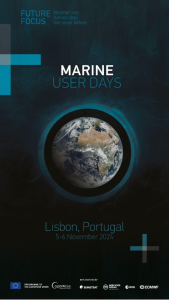 A collaborative event, hosted by EUMETSAT, with Mercator Ocean International, ESA, and ECMWF, the Marine User Days will bring together existing and prospective users from across the diverse marine data user community. Focusing on the data provided by the European organisations involved in the Copernicus programme and their role in oceanography and marine applications, the event will act as a showcase for use cases. It is also a networking opportunity for users across the value chain, and will feature workshops to engage with user needs and feedback. Emphasis will be placed on data from across the value chain including satellite data, derived products, climate data records and their applications. Copernicus contributing mission data from EUMETSAT’s meteorological missions and data from the satellite application facility specialising in ocean and sea ice will broaden the scope.
A collaborative event, hosted by EUMETSAT, with Mercator Ocean International, ESA, and ECMWF, the Marine User Days will bring together existing and prospective users from across the diverse marine data user community. Focusing on the data provided by the European organisations involved in the Copernicus programme and their role in oceanography and marine applications, the event will act as a showcase for use cases. It is also a networking opportunity for users across the value chain, and will feature workshops to engage with user needs and feedback. Emphasis will be placed on data from across the value chain including satellite data, derived products, climate data records and their applications. Copernicus contributing mission data from EUMETSAT’s meteorological missions and data from the satellite application facility specialising in ocean and sea ice will broaden the scope.
The event is free and participants can register here: https://www.eventsforce.net/marineuserdays. We look forward to welcoming you to Lisbon to work on turning data into solutions for our marine environment and communities.
Upcoming Events
Ocean Optics XXVI Conference
 Eight short courses are being offered in conjunction with the Ocean Optics XXVI Conference in Las Palmas de Gran Canaria, Spain. These include courses on HyperCP, Lidar for ocean colour applications, harmful algal bloom prediction, ThoMaS, Aquaverse for land and coastal waters, and best practice for optical data collected via in-line (flow-through) systems, as well as workshops on SeaDAS, and machine learning for ocean studies. All short courses will be held on Sunday, 6 October 2024. Registration for short courses is open until 13 September 2024 on a first-come, first-served basis, with a waiting list thereafter. Registration may close early if full capacity (including waiting list) is reached.
Eight short courses are being offered in conjunction with the Ocean Optics XXVI Conference in Las Palmas de Gran Canaria, Spain. These include courses on HyperCP, Lidar for ocean colour applications, harmful algal bloom prediction, ThoMaS, Aquaverse for land and coastal waters, and best practice for optical data collected via in-line (flow-through) systems, as well as workshops on SeaDAS, and machine learning for ocean studies. All short courses will be held on Sunday, 6 October 2024. Registration for short courses is open until 13 September 2024 on a first-come, first-served basis, with a waiting list thereafter. Registration may close early if full capacity (including waiting list) is reached.
The Conference is also launching an Ocean Optics Community News Page and requests your items of interest that you would like to share. Feel free to submit your contribution for consideration to Jenny Ramarui (jenny@tos.org), Conference Coordinator.
SCOR Annual Meeting & Public Symposium
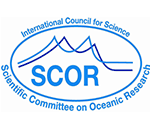 The annual meeting for the Scientific Committee on Oceanic Research (SCOR) will this year be held in China from 16 – 18 October 2024. In recognition of the 40th anniversary of the SCOR China-Beijing National Committee, who will be hosting the meeting, there will be a pre-meeting public symposium at The Shangri-La Hotel Qingdao on the afternoon of 15 October 2024. The celebration will review main achievements and outline the future vision of SCOR-China. All participants of the SCOR 2024 Annual Meeting are invited to join the celebration. Register here for the meeting and symposium. In-person participants are requested to register by 1 September 2024 to allow for logistical planning.
The annual meeting for the Scientific Committee on Oceanic Research (SCOR) will this year be held in China from 16 – 18 October 2024. In recognition of the 40th anniversary of the SCOR China-Beijing National Committee, who will be hosting the meeting, there will be a pre-meeting public symposium at The Shangri-La Hotel Qingdao on the afternoon of 15 October 2024. The celebration will review main achievements and outline the future vision of SCOR-China. All participants of the SCOR 2024 Annual Meeting are invited to join the celebration. Register here for the meeting and symposium. In-person participants are requested to register by 1 September 2024 to allow for logistical planning.
Employment Opportunities
Several new research and employment positions have been added to the Employment Opportunities section on the IOCCG website. These include the following, for which deadlines are fast approaching:
- PhD Scholarship, Curtin University, Australia (deadline 18 August)
- Postdoctoral Position, IOPAN, Sopot, Poland (deadline 20 August)
If you would like to include a position on this page, please contact Raisha Lovindeer.
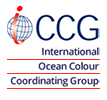
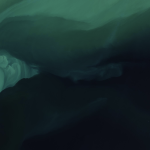

 The 6th International Ocean Colour Science (IOCS) meeting was held in Darmstadt, Germany from 1 – 4 December 2025, hosted by EUMETSAT and ESA. All meeting material is available is on the archive webpage.
The 6th International Ocean Colour Science (IOCS) meeting was held in Darmstadt, Germany from 1 – 4 December 2025, hosted by EUMETSAT and ESA. All meeting material is available is on the archive webpage.